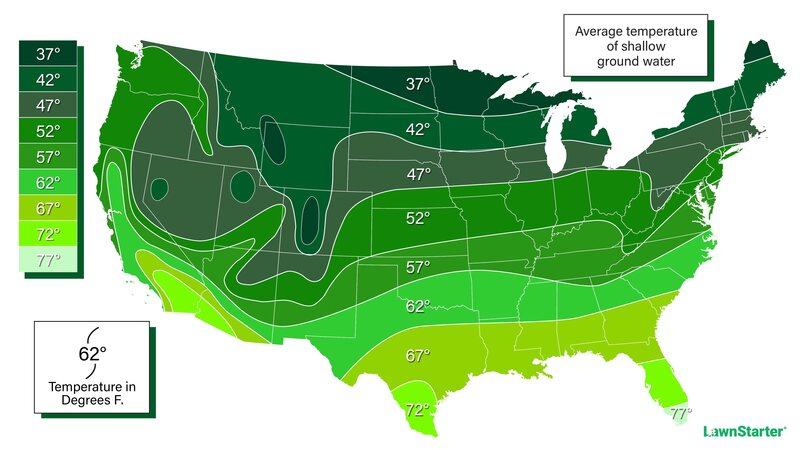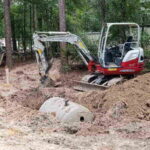Tankless water heaters, also called demand-type heaters, have been growing in use in the United States since the 1990s. While conventional water heaters keep a supply of water constantly heated, tankless water heaters heat water as it is needed. Installing a tankless water heater costs an average of $2,360, with most homeowners paying between $1,125 to $3,620.
You can buy a tankless water heater for a national average low of $130, but that doesn’t include installation. Even if you have the do-it-yourself background to install one, there will almost certainly be additional costs to install lines and wiring, easily doubling or tripling the price.
In This Article:
- Average Costs
- Cost Estimator by Type of Fuel
- Cost Estimator by Annual Operating Costs
- Other Factors That Affect Cost
- Related Services
- Cost by Location
- FAQ
Average Tankless Water Heater Costs in 2025
| National Average Cost | $2,360 |
| Typical Price Range | $1,125 – $3,620 |
| Extreme Low-End Cost | $130 (single-point system without installation) |
| Extreme High-End Cost | $5,045 |
There is a great variance in the cost of tankless water heaters. The size of the unit will matter; a single-point unit obviously will cost less than a whole-house system. In addition, people are drawn to solar for its cleaner energy and long-term savings, though it is more expensive up front.
As you start your search, know that the typical price for a tankless water heater ranges from $1,125 to $3,620, including materials and installation.
Cost Estimator by Type of Fuel
The type of fuel that you use to provide the heat for a tankless water heater system will affect the price of the unit and its installation. Solar is growing in popularity with its cleaner, sustainable energy and lower operating costs, but it isn’t always available. In addition, some rural areas may have little choice but to use propane.
| Fuel Type | Costs with Installation |
| Electric | $560 – $1,700 |
| Propane | $640 – $2,420 |
| Natural gas | $760 – $2,520 |
| Oil | $800 – $3,000 |
| Solar | $1,360 – $4,920 |
Cost Estimator by Annual Operating Cost
| Annual Operating Cost | Cost |
| Electric | $165 – $360 |
| Natural gas | $190 – $400 |
| Solar | $100 – $175 |
Other Factors That Affect Cost
Lifespan
A tankless water heater is expected to last 20+ years, according to the Department of Energy. A system with a tank is expected to last 10-15 years.
Savings
It saves most homes about $100 per year over a storage system, though the total cost of a tankless water heater can be much greater.
Solar
Using solar to heat the water in a tankless system produces an average of $274.46 in annual savings.
Usage Patterns
Cost is affected by these usage patterns of the average household in America:
- Use 64 gallons of water a day
- Spend $400 to $600 each year heating water
- Find that 14% to 18% of its utility bills go to water heating
For households that are outside the normal range of hot water use (64 gallons per day):
- Homes that use a little water, say 41 gallons or less of hot water a day will be 24% to 34% more energy efficient using a tankless system.
- Homes that use a lot of water, say 86 gallons or more a day, can be 8% to 14% more energy efficient with a tankless system.
Installation Costs
Installation costs may increase over such additional expenses as a need to replace existing lines or to install more venting hoods or electrical circuit-breakers.
Number of Units
A second tankless water heater may be needed to provide all the hot water needed on-demand at multiple sites (say if you want to run a shower, dishwasher, faucet, and washing machine at the same time).
If you have features that call for warm water (think hot tub), you likely will want to include a tankless unit just for it.
Maintenance
Regular maintenance is important to homeowners, especially if you want the energy savings that come from managing energy costs. The owner’s manual will have specific maintenance guidelines for electric models, gas tankless water heaters, and solar devices. Even a new tankless water heater should be monitored.
A LawnStarter analysis found that regular maintenance is cost-effective. LawnStarter found that the national average cost of minor plumbing repairs is $158 to $417. If you have hard water, ask your plumber how this might affect your system. Hard water can lead to a build up that clogs the pipes, and sometimes the heat exchanger.
Pro Tip: Not all plumbers/technicians are familiar with tankless water units, so they may be learning on the job when they work on your system. You may have to pay a higher fee to a technician trained in tankless water heaters.
Tax Incentives
Tankless water heaters qualify for a tax rebate, according to the IRS:
- 26% rebate if installed before January 1, 2023.
- 22% rebate if installed after that and before January 1, 2024.
The rebate does not apply to rentals, but does apply to a primary residence, second home, and new construction.
States and cities/towns have programs, too. A good place to find ones that apply to you is to use the Energy Star rebate list or the Database of State Incentives for Renewables and Efficiency (DSIRE) that is maintained by North Carolina State University.
Related Services
Hot Tubs
Since you’ve got the plumber on-site, why not get a quote on the cost to install a hot tub? A hot tub can draw water from a tankless water heater, with the unit being part of the national average price of $6,900, a LawnStarter survey found.
Water Damage Restoration
Water damage restoration can still be needed, even though there is no storage tank of water to leak. Pipes carry in the water and they can break apart, creating water damage. Fortunately the water that leaks should be Category 1, making the cleanup cost to be $2.90 to $4.10 per square foot.
Solar Panels
Solar panels can provide the energy to heat the water in a tankless system. Expect to need three panels. While the national average cost for a solar panel system is $20,000, the cost of single panels is $150 to $550 apiece.
Pools
Pools can be heated with a tankless system. It should be set up to keep the water in the 70 degree F range. Electric, gas, or propane systems will work. A LawnStarter analysis presents the factors that impact pool heater costs, which typically range from $1,700 to $4,300.
Cost by Location

Tankless water heaters work efficiently in cold climates, such as Canada and the northern U.S., according to a report published by the American Society of Plumbing Engineers, an international association of 6,000 members.
The report also found:
- Gas heats water faster and more efficiently than electric, making it the better choice in cold climates.
- Gas can heat water in a tankless system even with low groundwater temps, as low as 40 degrees Fahrenheit.
Keep in mind that in colder parts of the country, the groundwater will need more energy to warm it, raising the operating cost.
In cold climates, you want to be sure to have warm water, so you shouldn’t economize on the size of the tankless water heater. A tankless water heater with a capacity of 2 gallons per minute will cost less, but you will want to be sure to get one with a capacity at least three times that size, if not more.
In rural areas, natural gas may not be available. These places often use propane to provide heat, so it is available to use with your tankless water heater.
FAQs
Tankless water heater installation is best left in the hands of a professional, according to the U.S. Department of Energy. The agency points out that proper installation depends on:
● Fuel type. Natural gas, propane, oil, solar, and electric tankless water heaters are the types of tankless water heaters that are available.
● Climate. It especially matters when it comes to the temperature of the water that has to be heated.
● Building codes. They vary by location.
● Safety issues, especially when it comes to gas lines and other gas devices. Experienced plumbers will know when and how to install wider venting pipes, for example.
If you believe you have the DIY skills to take on the challenge:
● Consult the manufacturer. Be sure to get and review the manuals for installation. Review the warranty.
● Expect to need a permit. Be sure to obtain one before you start.
● Review local water heater installation codes (which should be done upfront and is usually part of the permit process).
When you live in a home with a traditional tank water heater system, you know you might run out of hot water (something that has happened to just about everyone, hasn’t it?), so you make efficient use of your time in the shower. But when you can’t run out of hot water, people often linger in the shower. Those longer showers can eat into the savings you expected by going tankless.
A family of four is likely to use 9 kWh or $1.35 of electricity per day. If the amount of time in the shower triples per person, that number could easily double. Over the course of the year, the household would lose the financial benefit of using a tankless water heater.
Tankless hot water heaters expel hot gas, so they need special venting to the outside.
If you pay the national average cost to switch from a tank system to a tankless one, your costs in making the switch will zero out, but it will take time.
Using the recent cost of natural gas or electric energy for the home, the payback time breaks down to:
● Gas, 24 to 30 years (at the national average price of $12.18 per 1,000 cubic feet).
● Electric, 14 to 24 years (at the national average price of 0.165 per KWh).
Manufacturers recommend that you flush a tankless water heater yearly. It certainly makes sense to have an annual maintenance review, and to make the venting a part of that. In places that have especially hard water, you might want to vent twice a year in order to keep the flow rate up.
Getting your tankless hot water heater ready for winter takes seconds compared to conventional tanks that take a long time to drain.
A Call to Action
If you own a home, you should attempt to operate it in ways that are efficient both financially and operationally. Installing a tankless water system is both. Review the choices, and contact a local plumbing company for help to decide on the one that is the best fit for you.
Additional source: Georgia Consumer Protection Division
Note: LawnStarter may get a referral fee for matching you with contractors in your area.
Main Image Credit: J. Peter Eisenschenk / Flickr / CC BY 2.0





